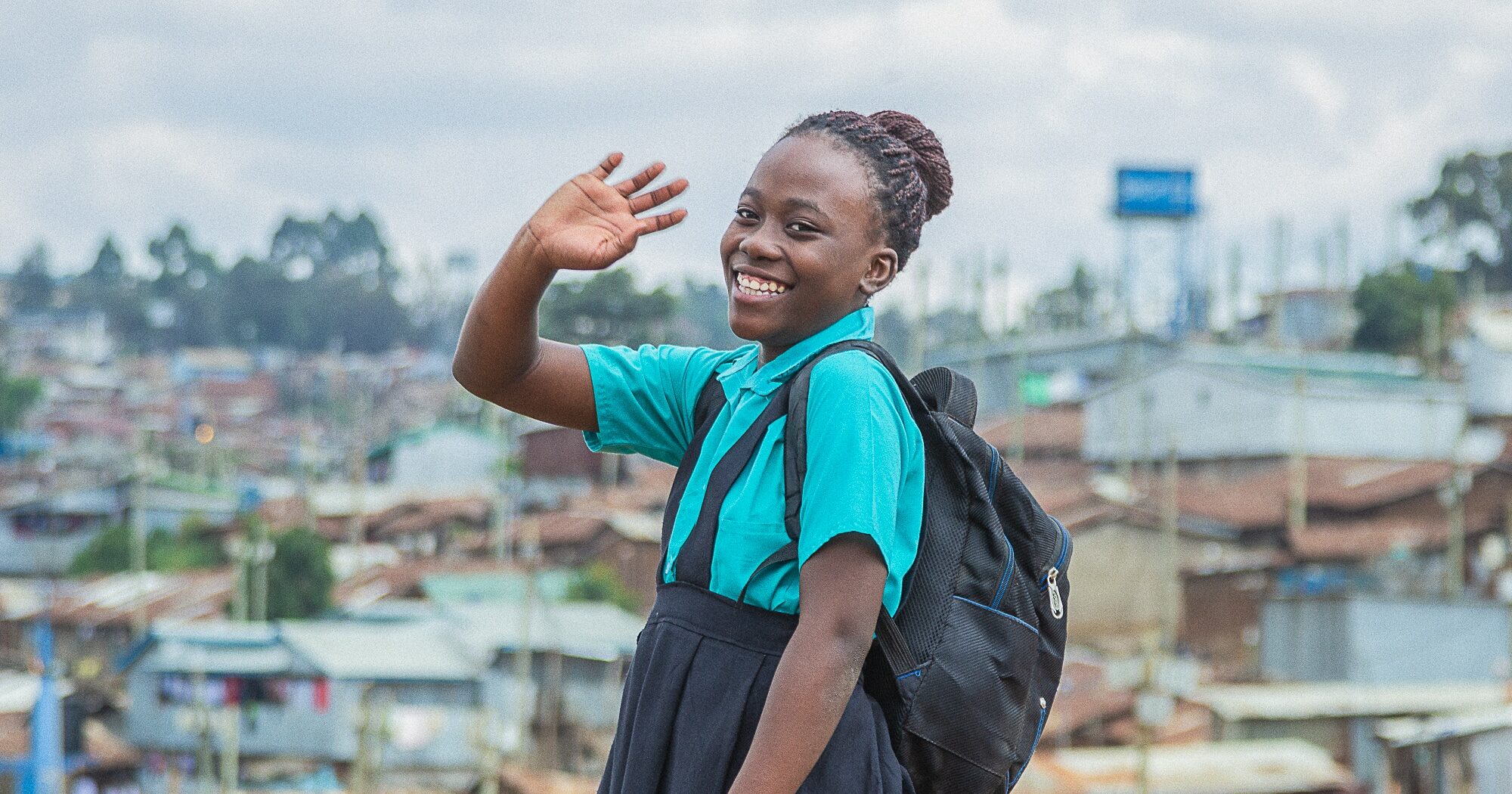Impact(Ed) mentors support students through challenges they face at home or in the community that can be an obstacle to learning. These may include gender–based violence, pressure to marry early, and substance abuse. Mentors who understand these issues, can detect warning signs, and can provide appropriate guidance are key to helping students attend, and remain in, school.
This year as part of Impact(Ed)’s girls’ education COVID response we trained 66 mentors across 20 schools in Kenya. We spoke to Naomi, a mentor based in Kajiado, Kenya, to find out more about life as a mentor.
Tell us some facts about yourself.
I am a very positive person, I like believing that nothing is impossible. I never give up despite the challenges I face every day and those I have been through in my life. I still hold my head high and try to find happiness within. I like helping young people navigate through their challenges and become successful in life. In my free time, I keep busy with my cows.
What motivates you to be a mentor?
My own personal experience in life motivates me to be a mentor. I am Maasai. Being born and brought up in this area has taught me a lot and I have proved to myself that nothing is impossible if one is determined. I share with the students that whatever they are going through it shall come to pass if only they work hard, be determined and believe in themselves – motivating them that they can still make it in life.
I am very motivated by the trainings from Impact(Ed). I have enjoyed every aspect of the training. I have learned so much from the time we started with the in-person training in August 2021 to the online trainings that I have been taken through, they are rich in knowledge, and eye opening in so many ways. They have made me look at life in a very different way. I can understand the learners better and I have the ability to handle any issues they share with me. I feel confident, rejuvenated and in high spirits to learn about guidance and counselling skills, gender based violence and its contributing factors, and drug and substance abuse effects.
What does being a good mentor look like?
A good mentor is a role model, empathetic, responsible and a good listener. Keeping confidentiality is very important too. For me, being a mentor is being there for the learners, especially girls, when they need me, when they are facing challenges and when they are not doing well in class. Being present emotionally, physically and financially where possible. Guiding the girls to make the right choices with the minimal chances they have at home and in school because of cultural issues. Being able to hold the hands of the young girls even after female genital mutilation to just encourage them so that they can feel that there is life after FGM and they can still achieve their dreams.
What challenges do you face as a mentor?
There are a number of challenges. As a local, whenever I differ with other locals on culture to support the learners, I can be labelled a bad influencer. For example, when it comes to issues like early marriage and FGM. Not being able to convince the parents to stop FGM of girls in the 21st century, I feel challenged and helpless. Being a woman in Maasai culture often means girls are not given enough opportunity to speak out or share their feelings. COVID-19 has also brought many challenges with it.
What is the best thing you have taken from mentorship?
I’ve learned new approaches to different situations that children go through. I have come to understand the importance of sharing experiences – do not keep quiet because each one of us is going through some form of challenges in one way or another. Through training I have developed my ability to support learners in dynamic ways. Confidentiality is key in offering counselling and understanding one’s emotions at the time of session is paramount.
What have you learned from Impact(Ed)’s mentorship training and support?
Through training I have learned so much around gender based violence – contributing factors as well the everlasting effects on one’s health and psychological wellbeing. I have learned a lot of guidance techniques and about addiction and substance abuse.




